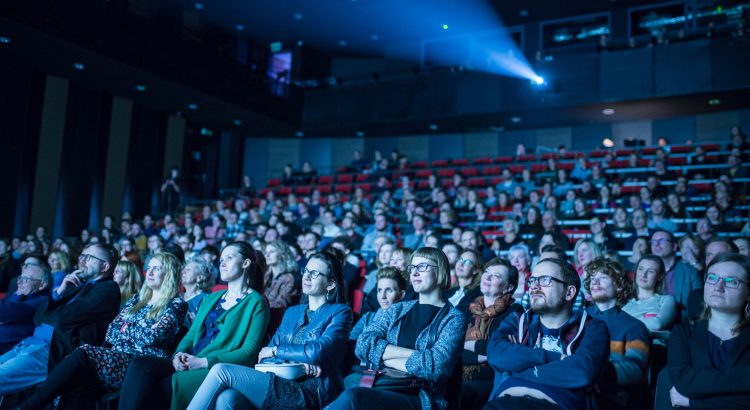A film may be short, but can still have great impact. That’s the mantra of the fantastic Short Waves, which focuses on shorts and has an open-minded and dynamic approach to its filmmaking. After their big 10th edition, they are preparing for their 11th – a new start into the decade. We spoke with both Emilia Mazik, Programme Coordinator, and Paulina Wieczorek, their Competitions Coordinator, on the upcoming edition, touching on topics from their “Outside the Box” theme to their craziest festival stories and the unique Short Waves experience of screenings in other peoples homes.
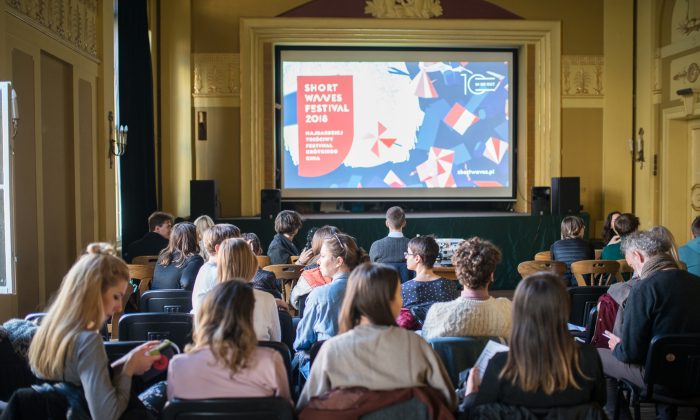
Andrew Wilkin: What is Short Waves?
Emilia: “The most concise film festival” as we call it, for shorts under 45 minutes. It’s quite young but at the same time, we’re very well established. Although it’s definitely not the oldest in Poland! But we are proud to have more submissions and international guests every year.
Paulina: Our way of programming is very open-minded. It’s about visual art and how cinema can impact our lives.
Emilia: The current political situation in Poland is also an influence. More specifically, the general direction Europe is taking to the right, with populism, flood of fake news and such. It’s really important to teach some critical thinking.
Programming is not just about the film, but about the art behind it. There’s a million films about the refugee crisis but not all of them are good. Sometimes conflict is essential! It’s a battleground.
Let’s quote our dear friends from VIS Vienna Shorts: „WE NEED TO DISAGREE“. Sometimes it’s important to not always agree. Not all ideas are for everyone after all.
Paulina: We try to keep the program diverse, so everybody can find something for everybody. And it’s not all about changing the world. We’re also about hope, joy and a celebration.
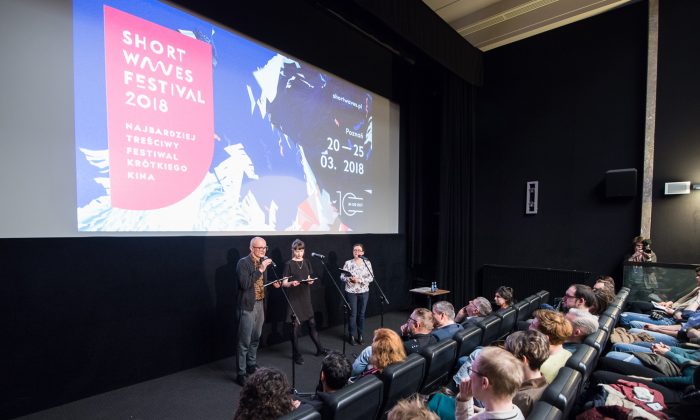
Andrew: What’s new this year?
E: We’ve just celebrated our 10th edition which was a kind of summary of past editions. The 11th marks a brand new start for us, with less screenings than last year, but more focused on well-thought programming and more on q&a’s, which is very important for our audience. The 2019 theme is “OUTSIDE THE BOX” – which gives an insight into what we do and new ways of storytelling.
Last year we came up with an idea of special site-specific screenings KINO FORMA (for 10-20 people), including asome performative aspects. For upcoming edition we are going to develop this section, make it even more experimental and interdisciplinary because our guests, local as well as international found those screenings really fresh and intriguing.
What’s also unique about Short Waves Festival is another programme section called RANDOM HOME CINEMA. The screenings are being hosted in apartments of local residents of Poznań and addresses of the screenings are kept secret to the last minute. Besides watching specially put together selection of short films, we invite people to come for drinks and food and just get to know each other. We are really proud of it and the section is definitely coming back next year!
Paulina: Especially international guests can enjoy the city atmosphere and become a local resident for a moment. This is our way to make guests feel like home. Isn’t it much better than a boring hotel? We also do an open call for apartments so everyone can submit the apartment or studio and host a beautiful, joyful evening as a part of Short Waves Festival community.
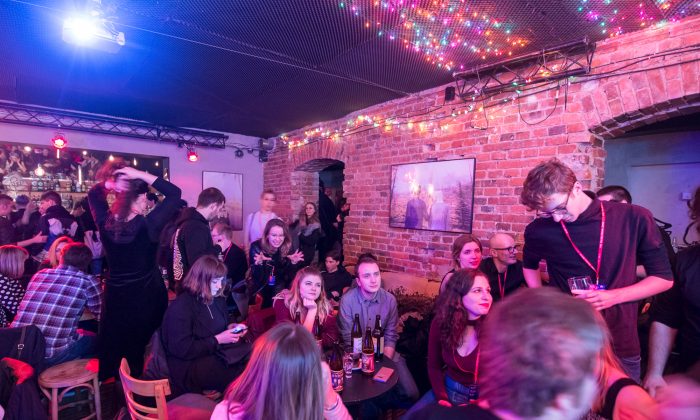
Andrew: What types of films do you accept?
Paulina: It’s not limited by any type of genre. This edition will be more experimental, even more diverse and definitely exciting as always. We will show the films which bring all kinds of emotions.
Emilia: We want to see some honesty. We can tell when some films were made for festivals. Storytelling is still very important in this age of technical possibilities.
Paulina: Exactly. We are particularly impressed with simple humble stories because this is what make films so relevant and easy to empathise.
Andrew: What about your favorite moments from past editions?
Emilia: Well, there was our 10th anniversary piñata first of all.
Every year we also organize screening called Old Men Who Can. We’ve been doing for 9 years in a row. It’s a program of shorts about being a senior, telling inspiring stories. One year, I heard from some of our guests in the audience, a group of older women: “I’m old but don’t wanna watch films just about old people.” So I recommended them few different evening screenings. I was so surprised seeing them at Hot Shorts – screenings about love, sex and desire – at 10pm on a Saturday night, half of the room were senior ladies giggling! After the screening one woman said to me: “Girl, that was hot, my dead husband would have loved it!“.
Also, accessibility is very important to us, last year we start organizing screenings subtitled with sign language. That was a huge step forward and we plan to make more screenings accessible for people with different disabilities. We try to be audience-oriented as much as possible.
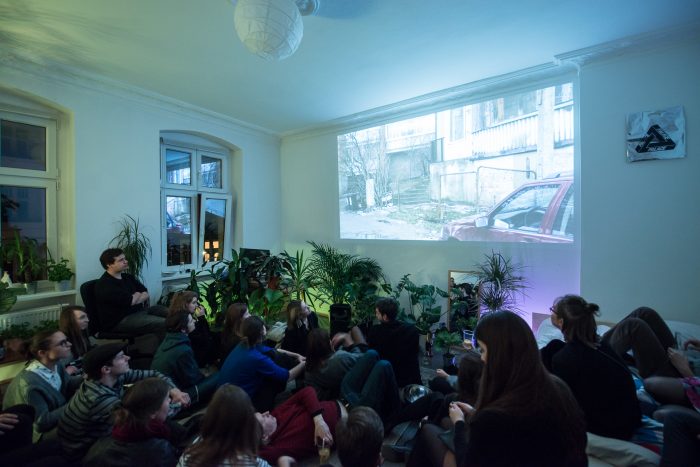
Andrew: What about Polish cinema? Where do you think it is at internationally right now?
Emilia: In Polish cinematography, feature films are being recognised outside of Poland, from Pawlikowski to Szumowska, and submitted to different festivals. Polish filmmakers are also getting to know how the festival circuit works. For our Polish competition, we are not so interested in whether or not it is trend-focused. If I could suggest something young directors, I would say “Be yourself. Don’t follow the trends.”
Also, we’re really super tired of these post-soviet dramas. A good film doesn’t have to be grey and boring, can’t we leave it all behind us.? I’m so happy when I see filmmakers work displays what is happening around them. Just look around and search for topics!
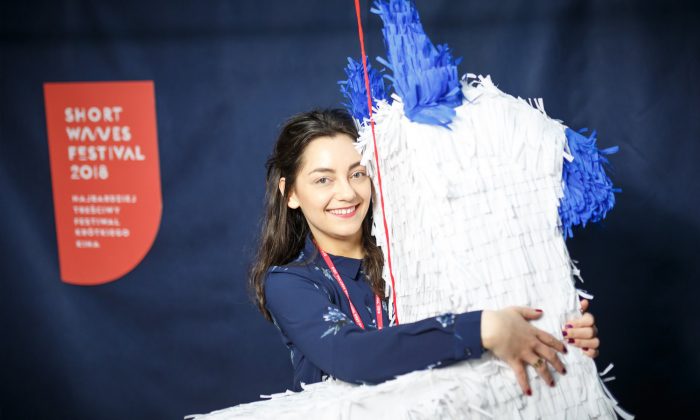
Andrew: What about the Dances with Camera section?
Paulina: It’s an international competition for short dance films, but the depiction is wide. It includes video dance performances or choreographies, narrative fictions, animations, documentaries – as far as it contains important for the story dance element. The screening room for this section is always full and gets great media coverage. Our audience is really enthusiastic to see how dance can be portrayed on a big screen.
Emilia: Yeah, we really encourage everybody to submit their work to this competition. There aren’t many festivals with a competition like this – if any! And many of our filmmakers come back year after year.
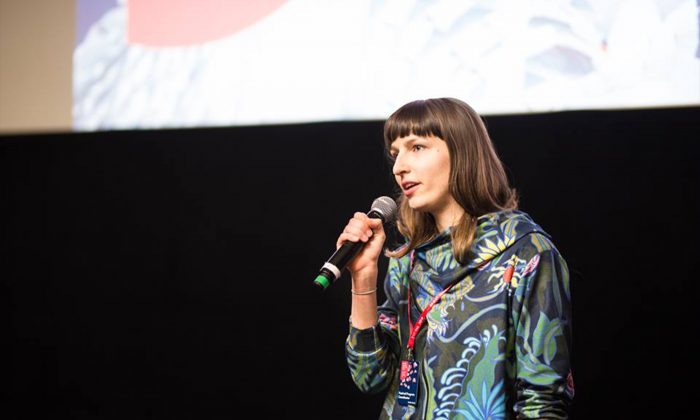
Andrew: What can filmmakers expect from their experience at Short Waves Festival?
Emilia: So many filmmakers come back to Short Waves – sometimes for the 2nd or 3rd time in a row, it means something! We cover full accommodation, food and drinks, and will take good care of you, introducing you to a whole host of people from the film industry. People can really get to know each other.
Paulina: I think we can call ourselves a rather cosy film festival but still open-minded and outgoing. Our festival club is full until the very morning everyday of the festival. People have long conversations with each other – audience meet the filmmakers and fillmakers meet the industry.
Emilia: For a few years we hosted European Short Pitch, international co-production forum which was a fulfilling experience for us and a great addition to Short Waves Festival although next year we will focus on industry panels about the future of cinema and wide distribution, as well as some other events for professionals.
Andrew: What shorts were your favorites from recent year?
Emilia: I loved The Rabbit Hunt by Patrick Bresnan and Flores by Jorge Jácome.
Paulina: I enjoyed Martin Cries by Jonathan Vinel and And So We Put Goldfish In The Pool by Makoto Nagahisa – the last one also won our Audience Award at Short Waves Festival 2018.
Andrew: Thanks guys!
Read more FilmFestivalLife stories:
:: The Best Festival Docs To Stream Online Right Now
:: Filmmaker Story. Reka Bucsi at the Berlinale
Read more of Andrew’s articles
